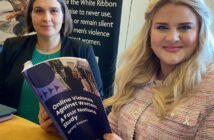As the new intake of OU students embark on their first modules (and others continue with the next one) it’s timely to look at what draws these hard-working scholars to study.
Why do they put in the hours to pour over pages of reading material, analyse stats, share in online debates, do home science experiments or spend time viewing a landscape of Mars through an online telescope (all of which OU students do).
Universities UK’s latest research shows that students cite a broad range of benefits when defining the value of a university education. Their poll * undertaken by ComRes, revealed only 1 in 3 (34%) of those polled decided to go to university to get a higher salary than they otherwise would have, and 8 out of 10 (79%) agreed that the government should do more to promote the broader benefits of a degree or university study, irrespective of potential salary.

In fact, the poll, of which almost 5% were OU students or recent graduates, found respondents actually decided on university for a broad range of reasons, such as to enjoy study and learning, because of an interest in their subject and as a first career step.
For OU students the reasons for choosing to study with the OU are also broad.
Insight from the OU’s own surveys consistently reveals students desire to study is for personal or vocational reasons and sometimes a mix of both. For example, a recent study * showed the top five answers to the question Which of these best describes your reasons and motivations for studying? were:
Self-improvement 60%
To gain a qualification 40%
Training 34%
To “prove I can” 33%
Career promotion 31%
And as many as 19% also spoke of the reason being “regret” – wishing they had studied earlier in life. (Source: Brand Strategy Quant Research conducted by The Nursery 2016 among a sample 435 current students)
OU study has focus on self-management
The Universities UK poll also considered the skills that students cite as being among the benefits they gain. The majority of students surveyed were at a traditional brick university but there were some interesting cross-overs with the benefits from studying at a distance, as OU students do.
Research from an employability survey (*) among OU alumni in 2018 showed that self-management is a key area of development, with communication and literacy and problem solving also high on the skills which our OU alumni noted.

OU students, mostly studying in their own homes (or wherever they rock up with their laptop and books) do have some slightly different take-outs.
Those for instance who balance a working life and perhaps a family with OU study cited “managing personal development career and work life” as a worthwhile tool they gained.
These are skills which impress employers too. PWC have stated that “balancing OU study with other commitments gives students flexibility and time management skills particularly valued by employers”.
Dr Liz Marr, Pro-Vice-Chancellor (Students) said:
“Our students come to us for a wide range of reasons and we know their aims on completion are just as varied. They fit their study around existing commitments, many juggling alongside family and full-time work.
For some having a degree with the OU enables a career change or that first step on the ladder, while others get a confidence boost they never even imagined possible.
“Fifty years ago this January the first cohort of students – our pioneers – began their journey with the OU and we’re very happy to offer today’s counterparts the same chance of life-changing learning.”
Our research showed that learning can lead to positive changes throughout the learning journey not just at graduation or completion.
- ComRes interviewed 2,280 people online between 20 August and 2 September 2019: 767 undergraduate students and 1,513 people who graduated in the last 5-10 years.
- The employability survey referred to is the Employability of Qualifiers Survey.



